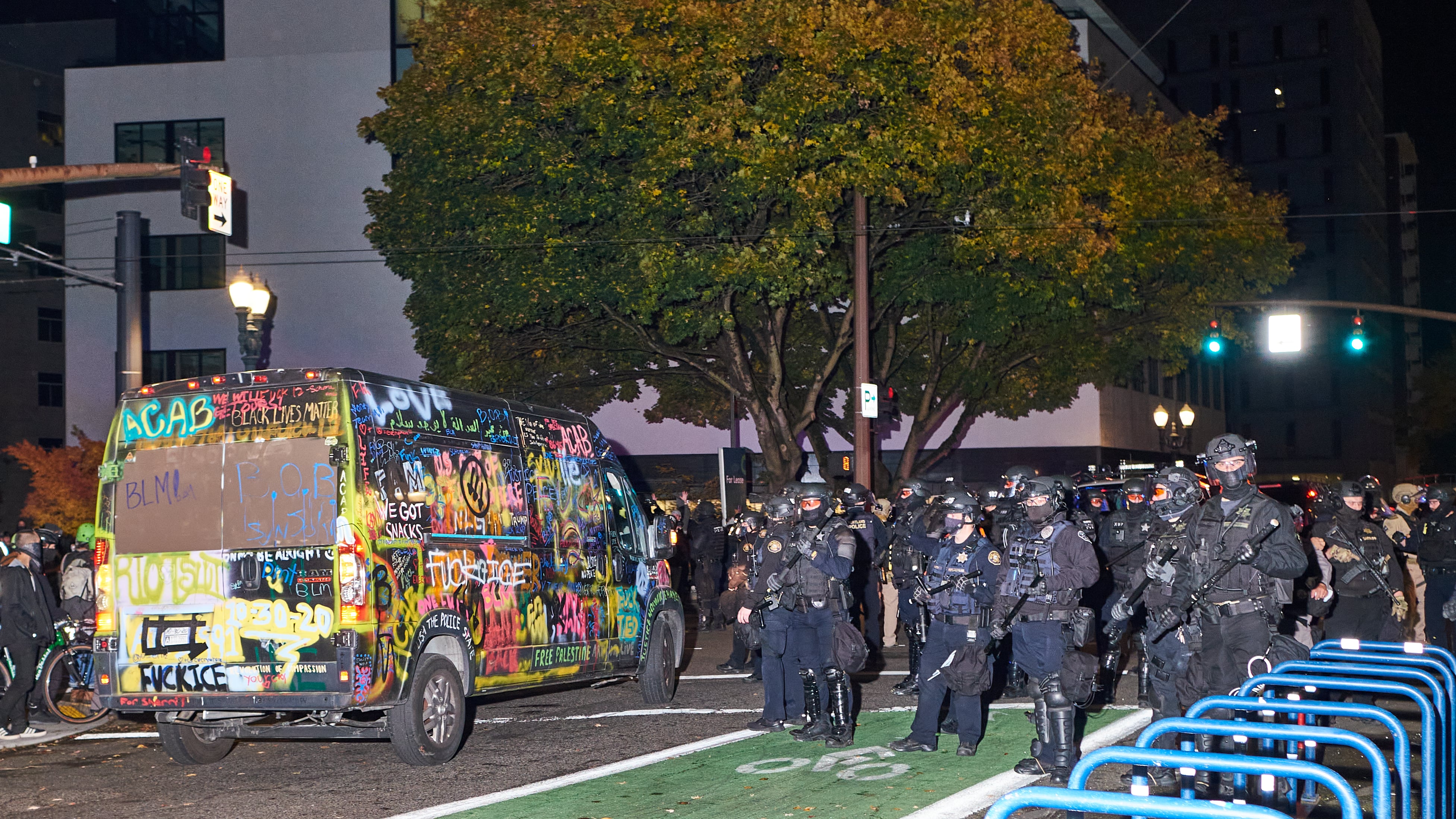The Portland City Council today rejected Commissioner Jo Ann Hardesty's proposal to cut $18 million from the Portland Police Bureau's budget and transfer the money to a package of relief programs for Portlanders harmed economically by the COVID-19 pandemic.
The 3-2 vote against Hardesty's proposal, which was by far the largest amendment in the fall budget monitoring process, came as little surprise after a contentious hearing last week in which Mayor Ted Wheeler and Commissioners Amanda Fritz and Dan Ryan declined to immediately vote on the proposal without more information.
A Deeply Divided Portland City Council Debates Hardesty's Call for $18 Million in Police Cuts
At the time, Commissioner Chloe Eudaly, who seconded Hardesty's amendment, said the $18 million cuts would not result in officer layoffs. An analysis released by the City Budget Office on Nov. 2 contradicted that claim and contributed to the three skeptics' sense that the cut was not sufficiently baked.
City Budget Office Says Hardesty's Proposed $18 Million Police Cut Would Require Layoffs
Hardesty tersely dismissed her colleagues' concerns, saying their caution and desire for additional process before making the changes she wanted were nothing more than a defense and continuation of the status quo.
"Just for a second, Black lives mattered in Portland," Hardesty said. "We will continue to talk about Black lives but we won't do anything to make them better."
Hardesty pointed to the months of protests on city streets; emails from tens of thousands of Portlanders calling for cuts beyond those the City Council already made; and hundreds of people who testified last week, most in favor of her proposal.
"The community is ready," Hardesty said. "Unfortunately, our leadership isn't."
Eudaly said today that spending the $18 million on emergency food supplies, eviction relief, hygiene and other services would do more to prevent crime than spending the money on police.
"These services are critical to the community and represent what the community is demanding from us," Eudaly said before casting a yes vote.
Fritz said she believed the commissioners agreed on the need to reform the Police Bureau but that without carefully designed and vetted alternatives, big cuts could lead to the kind of unintended consequences that wholesale closures of psychiatric institutions in the 1980s and '90s created. Fritz also took a shot at Hardesty, noting that the pilot for the Portland Street Response, which the council approved a year ago as an alternative to police responding to noncriminal calls for service, is still not up and running. "It takes time to make big changes," Fritz said.
In his explanation why he was joining Ryan and Fritz in voting against the cuts, Wheeler attempted to split the baby.
"I am very troubled that the proposal was not shared with our independent City Budget Office for review and analysis," Wheeler said. "Without their input, we were unable to nail down even basic facts about the proposal—for example, last week, we heard that it won't require layoffs, which is wrong."
But he then struck a conciliatory note. "The status quo is unacceptable," Wheeler said. "Many Portlanders, and most of the people who testified about this item, do not trust the current criminal legal system—they do not trust the Police Bureau."
Ryan, who won his seat in the August special election to replace late Commissioner Nick Fish with the help of an endorsement from Hardesty, again demonstrated his independence from her. Ryan acknowledged many voices supported Hardesty's proposed cut—but that's not the only point of view in the city. "Who are we not hearing from?" Ryan asked.
Ryan also spoke directly to the tension among commissioners on today's agenda. "I realize," he said, "we may need a peace summit among ourselves."
